Roasted swede or roasted rutabaga makes a simple but tasty side to be served on Thanksgiving, Christmas or just a mid-week dinner. It’s so easy to make, full of flavour and ready in just half an hour.
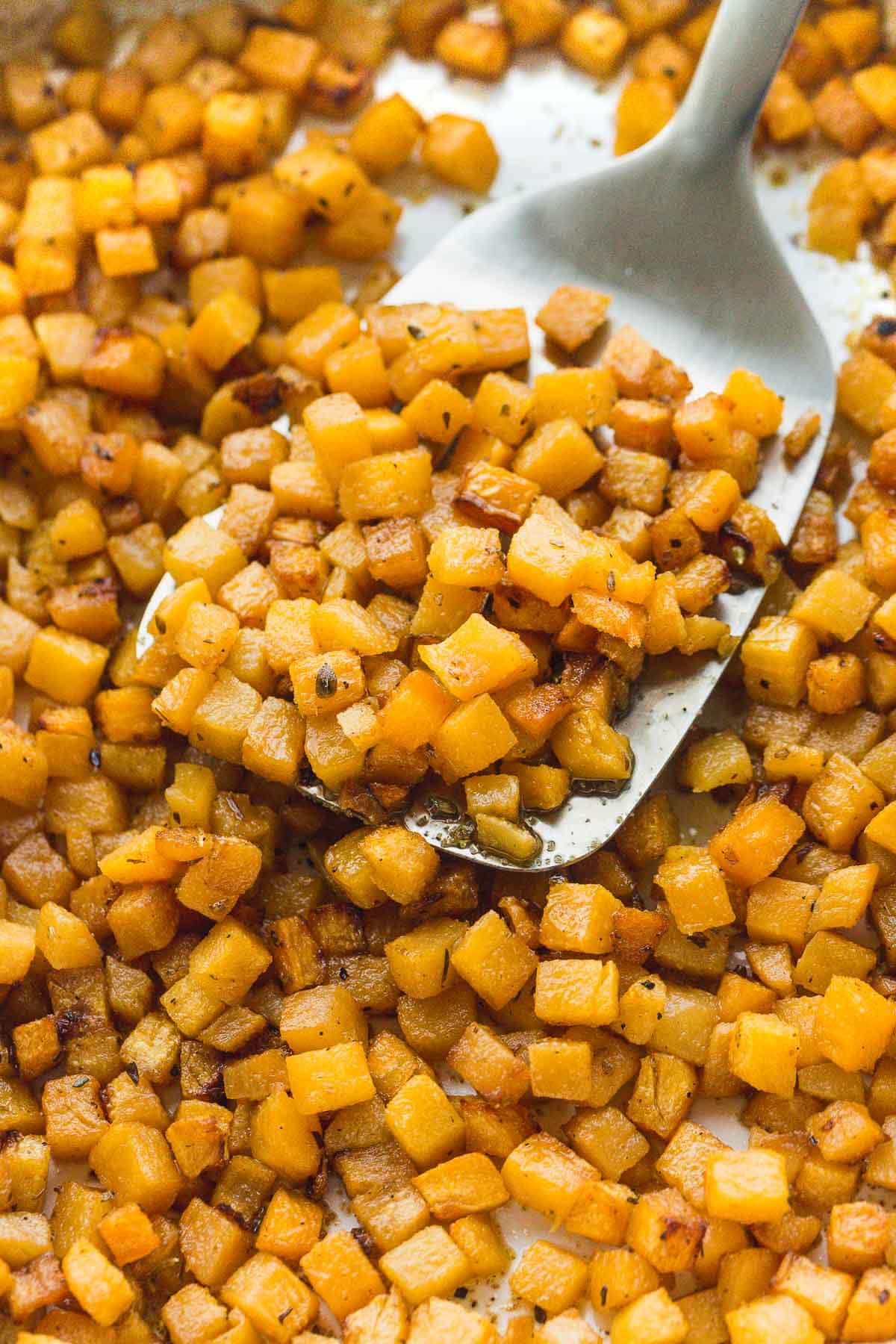
As the weather is getting colder every day, I’ve been enjoying cosy meals and lots of hot chocolate. I love winter veg, and swede or rutabaga is one of these staple ingredients that I always have on my kitchen counter in the winter.
I love the unique flavor of rutabaga/swede, so I add it to my casseroles, soups, make mash or rutabaga fries, or just roast it on its own. Here’s a super easy recipe for you, that I always make when I’m in a mood where I don’t feel like spending much time in my kitchen. This dish also makes an appearance on special family dinners like Thanksgiving and Christmas.
What Is a Swede/Rutabaga
Swede is called Rutabaga in the US, it’s a root vegetable that is a cross between cabbage and turnip. In the US, this root vegetable is also known as Swedish turnip or yellow turnip but in England, it’s known as Swede or just turnip, and neep in Scotland. In Russian, it’s called Bryukva (брюква).
It’s a winter vegetable that can be widely found in the UK, usually either roasted, steamed, boiled and mashed. It can be mashed with carrots or potatoes. It’s also a key ingredient in Cornish pasties! But this recipe that I’m sharing with you today is probably the simplest way of cooking swede.
What Does Swede Taste Like
The flavour of swede is mild but sweet, it’s smooth and kinda tastes like cabbage and turnips at the same time. They’re nicer than turnips though if you ask me.
The Difference Between Swedes and Turnips
Swedes are larger in size than turnips, and are more yellow than turnips from the inside and are half purple from the outside. Turnips are whiter and have a slightly peppery flavour.
Benefits of Swede/Rutabaga
Swede is rich in vitamin A and C, it’s also a great source of iron, calcium, potassium, and fibre. Swedes are low in calories, but offer a high nutritional value if cooked correctly (not overcooked!). To learn more about the benefits of Rutabaga, here’s an excellent article for you to check out.
How to Prepare Swede Before Roasting
Wash your swede, then using a knife cut off the ends. And then using a potato peeler peel the skin and dice.
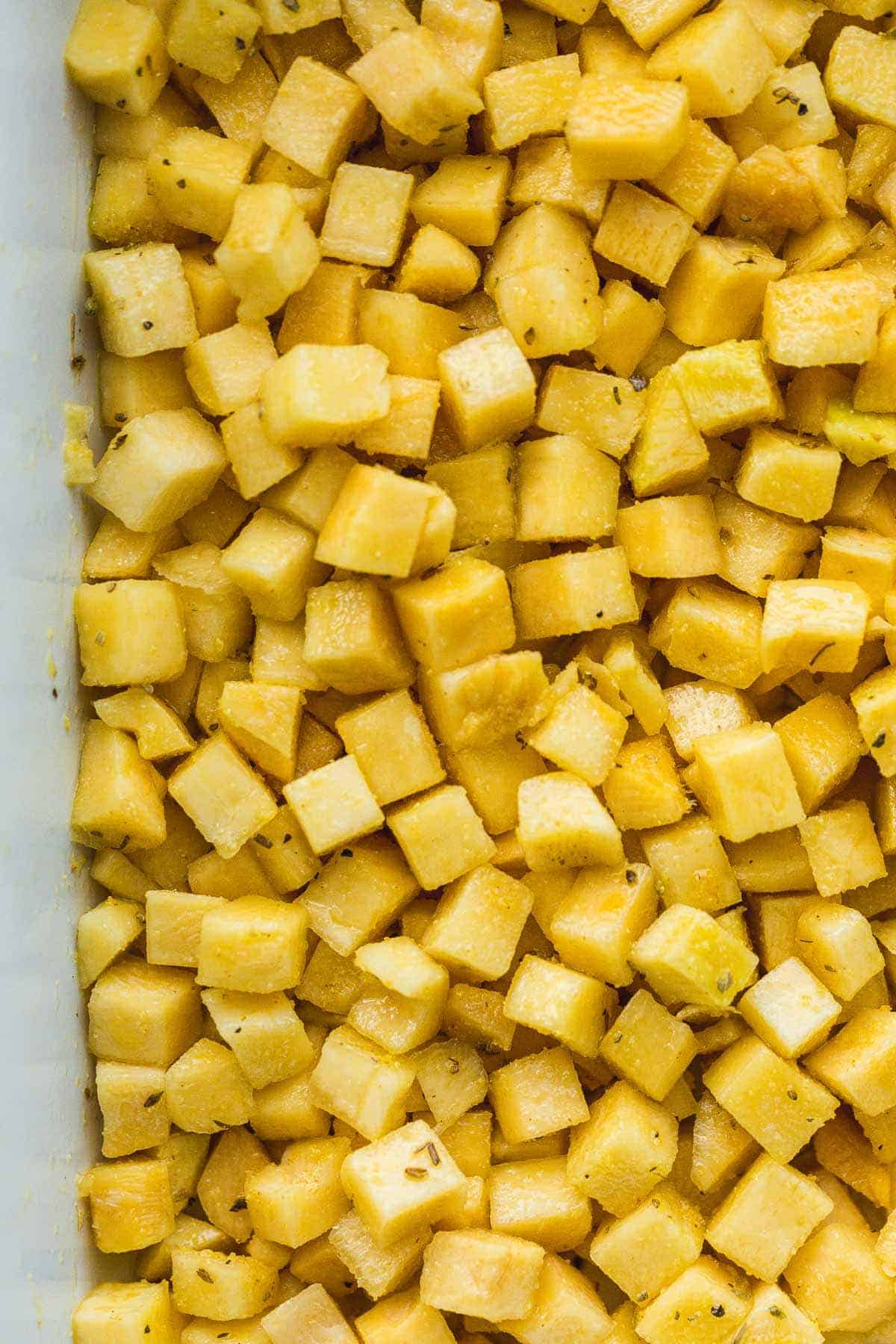
Roasted Swede/Roasted Rutabaga
Roasting swede is very easy, quite similar to roasting radishes. Here’s how you roast it:
- Prepare the veg as explained above, then dice into half-inch/1cm cubes.
- Scatter the swede cubes in a roasting tin or on a sheet pan, season with dried garlic, dried herbs (I use rosemary), ground black pepper, chili flakes, and sea salt.
- Drizzle with olive oil, and shake the roasting tin to make sure that the veg is well coated in olive oil.
- Roast at 200°C (392°F) for 20-30 minutes flipping halfway through.
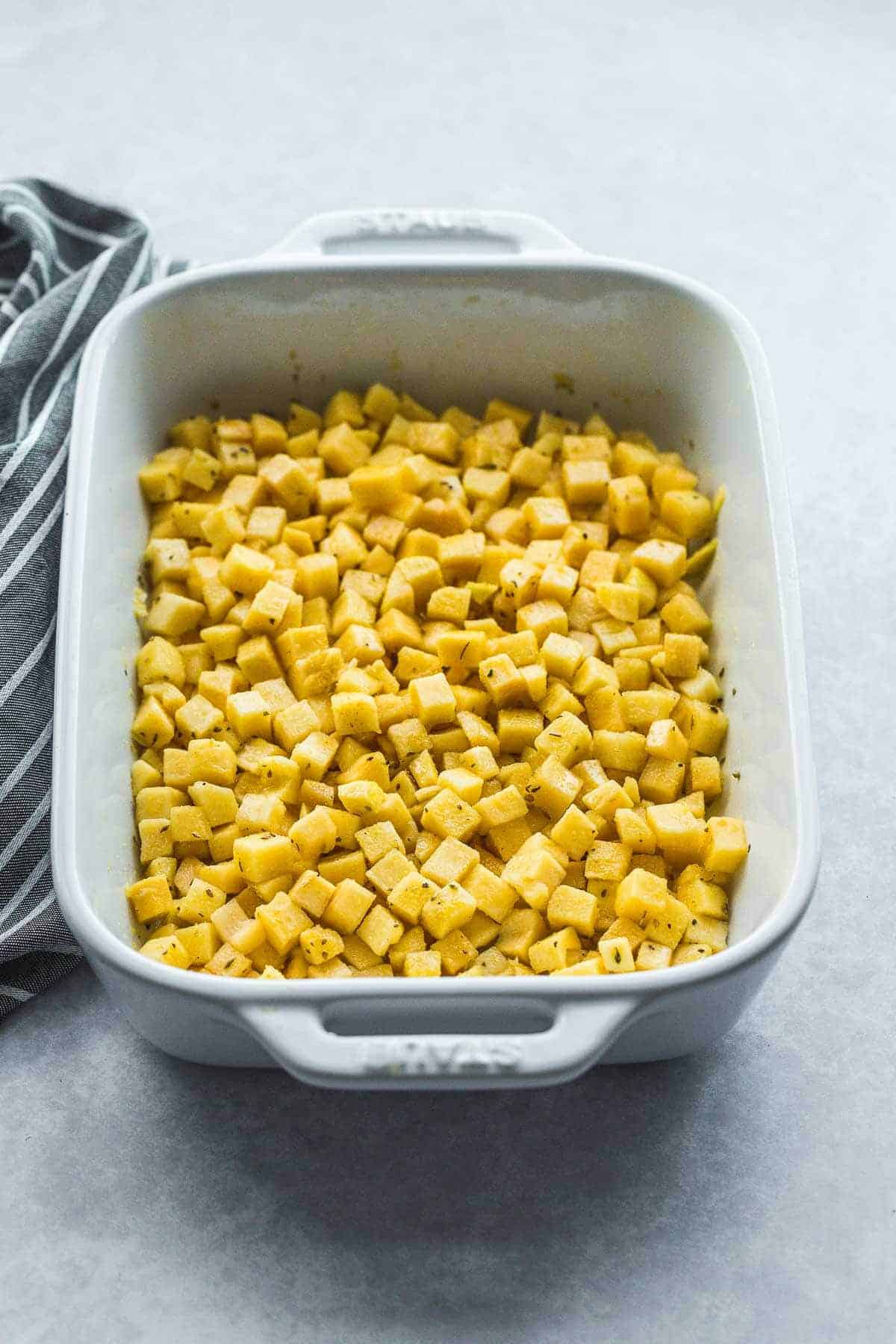
How to Cook Swede
There are many different ways to cook swede. It can be boiled and mashed, steamed, roasted or even cooked in the microwave. Swede can also be used to make soups, vegetable stock, casseroles, or can be made as fries with parmesan cheese (yum!).
The best thing about swede is that it can stay on your counter for months before it starts to soften and eventually go bad. They’re also very affordable and can be used in many different dishes.
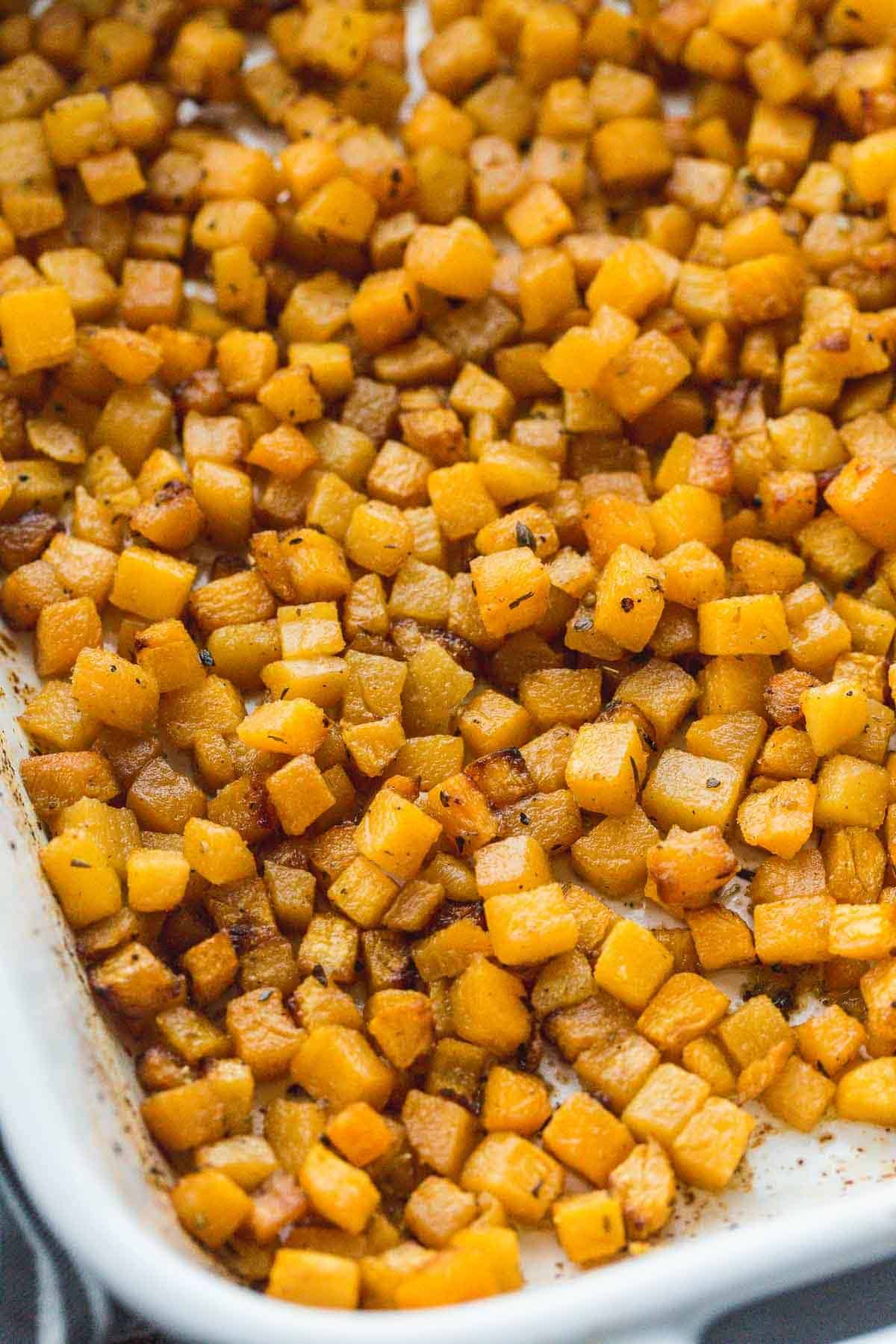
What to Serve Roasted Rutabaga With?
Roasted swede makes a great thanksgiving side, and it can be pretty much served with anything that you like. But below are a few ideas:
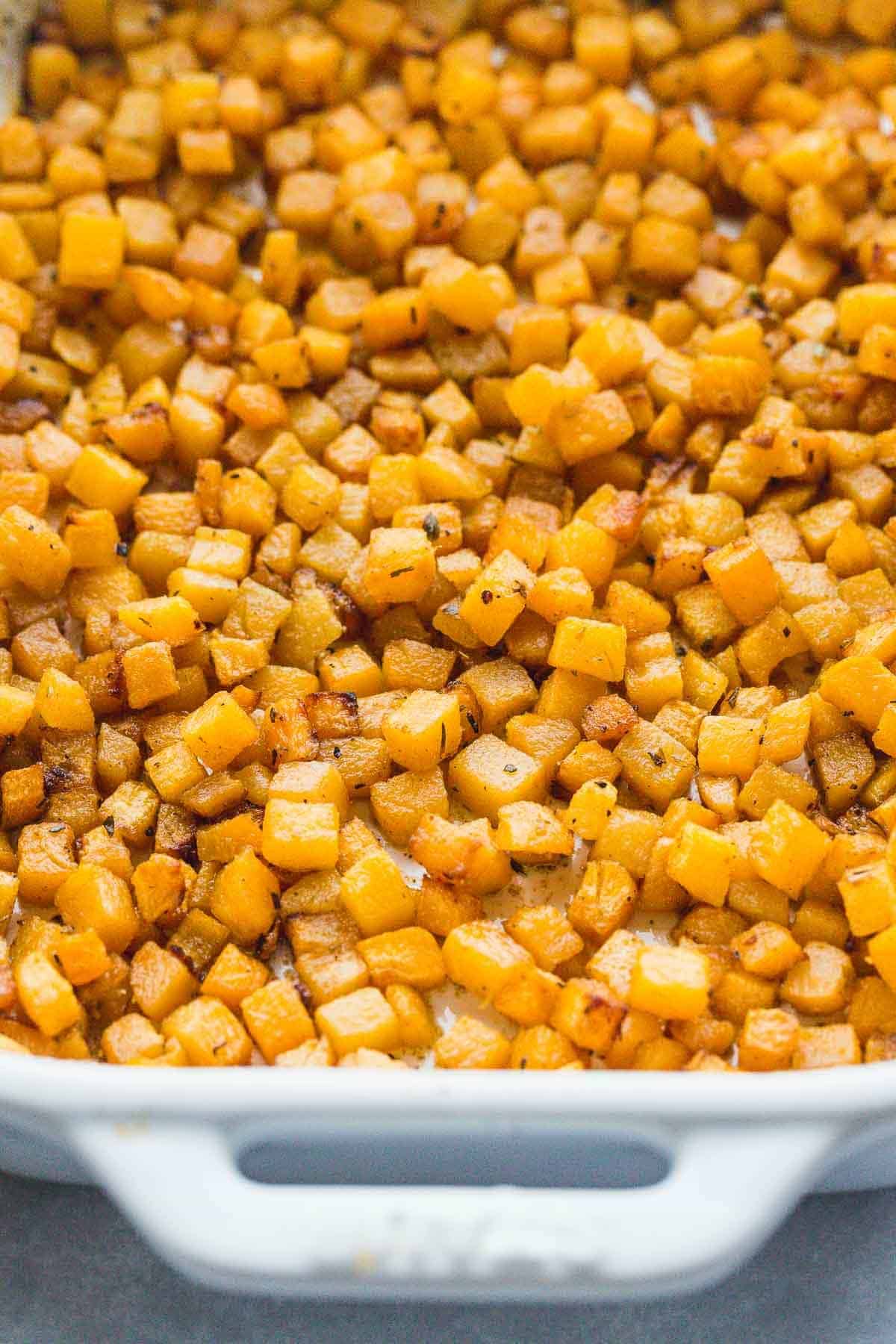
If you’re looking for more really good Autumn/winter recipes, try my roasted swede soup, and this 3 ingredient butternut squash soup. SO GOOD!
Did you make this? Be sure to leave a review below and tag me on Facebook, Instagram, or Pinterest!
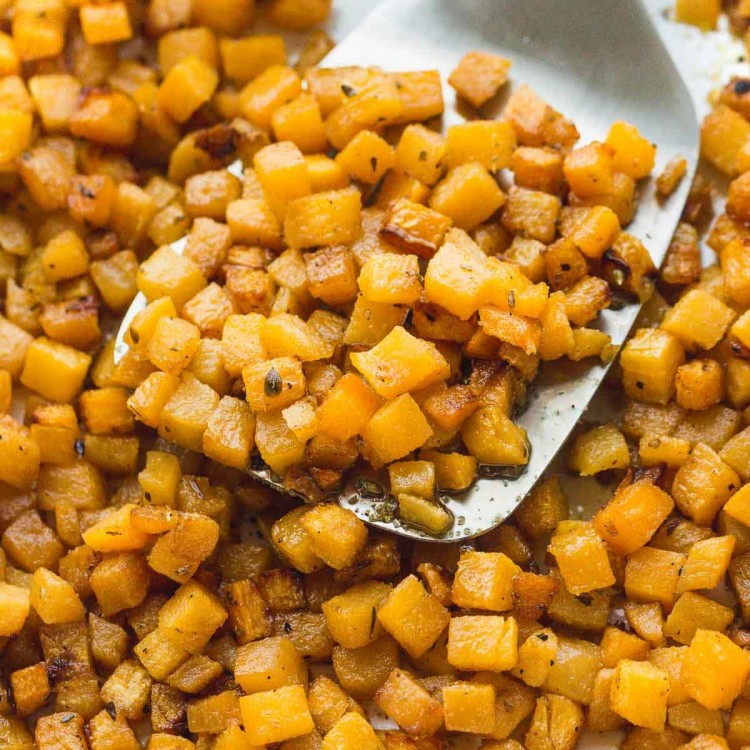
Roasted Swede
Ingredients
- 1 large swede/rutabaga
- 1 teaspoon garlic powder or granules
- 1 teaspoon dried mixed herbs
- ⅛ teaspoon ground black pepper
- ⅛ teaspoon chili flakes optional
- ½ teaspoon salt
- 2 tablespoon extra-virgin olive oil
Instructions
- Wash the swede, peel, and dice into half-inch/1cm cubes.
- Scatter the swede cubes in a roasting tin or on a sheet pan, season with dried garlic, dried herbs (I use rosemary), ground black pepper, chilli flakes and sea salt.
- Drizzle with olive oil, and shake the roasting tin to make sure that the veg is well coated in olive oil.
- Roast on 200°C (392°F) for 20-30 minutes flipping halfway through.
Notes:
Nutrition Information
This website provides approximate nutrition information for convenience and as a courtesy only. Nutrition data is gathered primarily from the USDA Food Composition Database, whenever available, or otherwise other online calculators.
© Little Sunny Kitchen
This recipe first appeared on the blog in November 2018, but was updated in December 2019 with new images and more information.
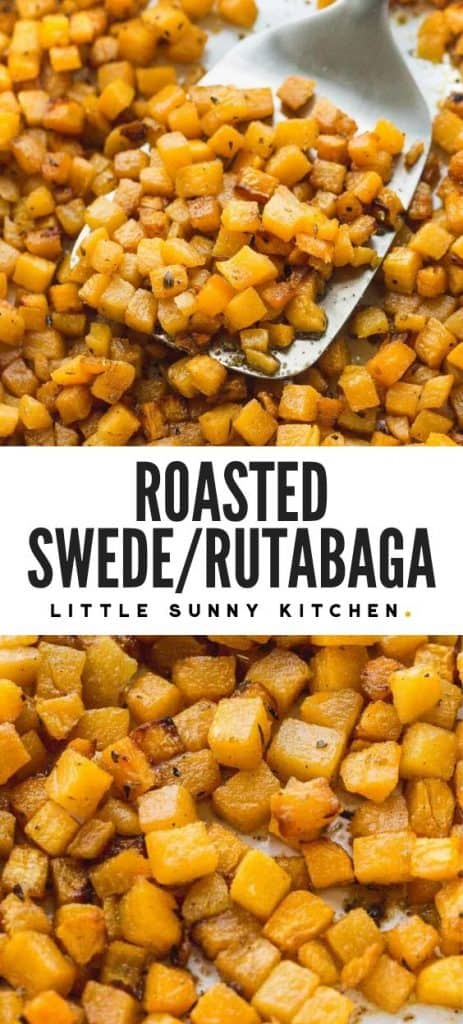
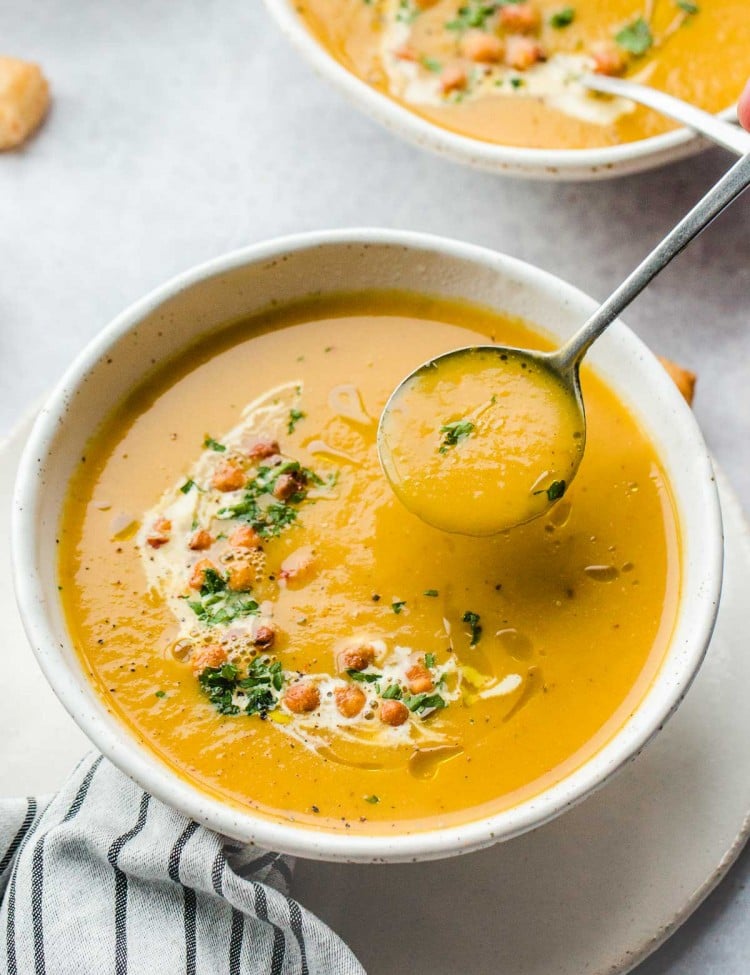
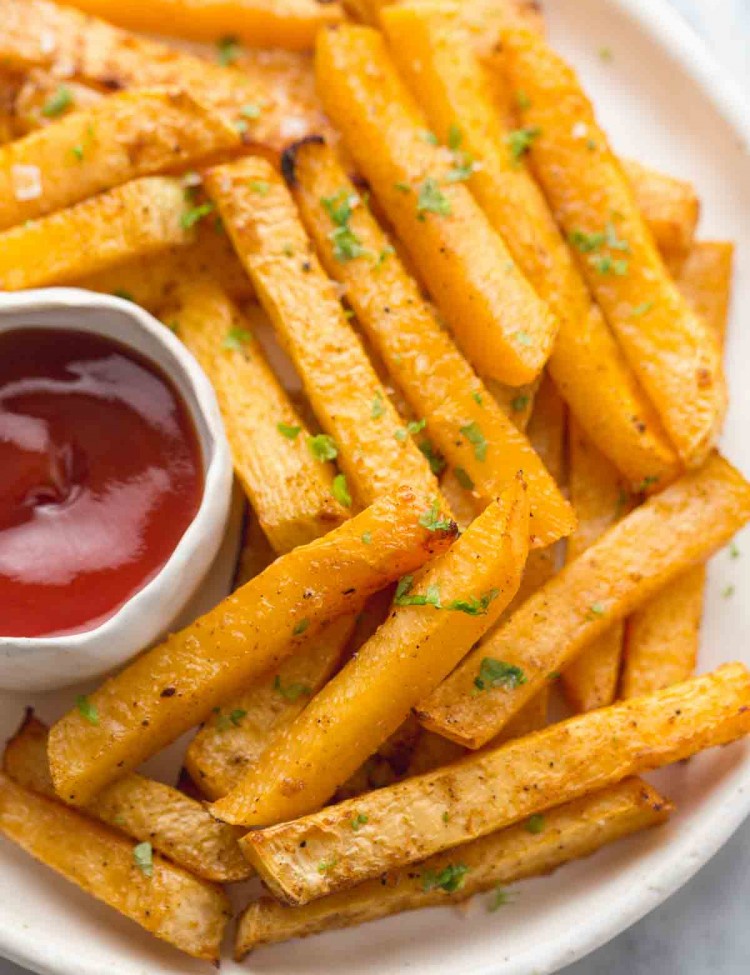
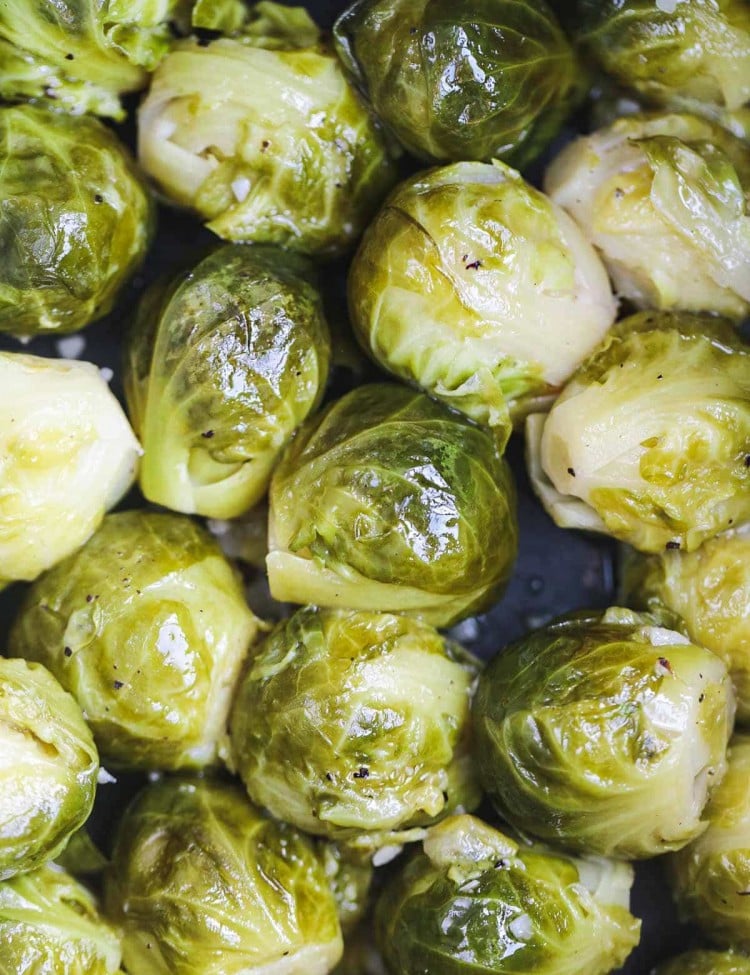
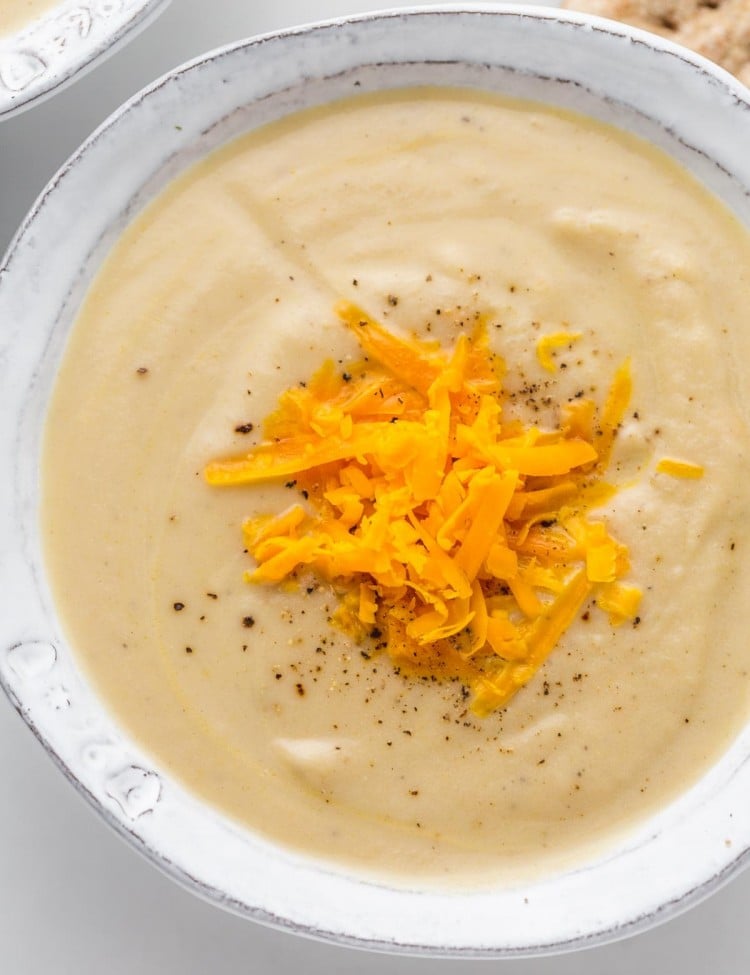
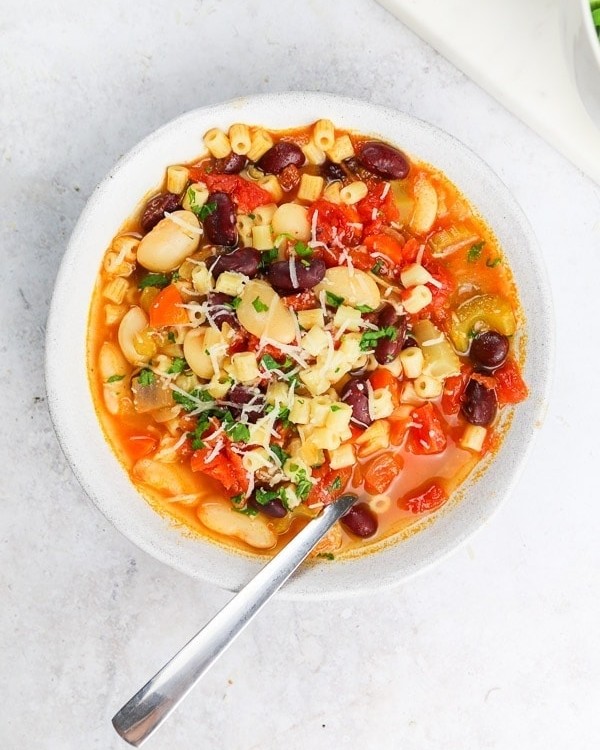
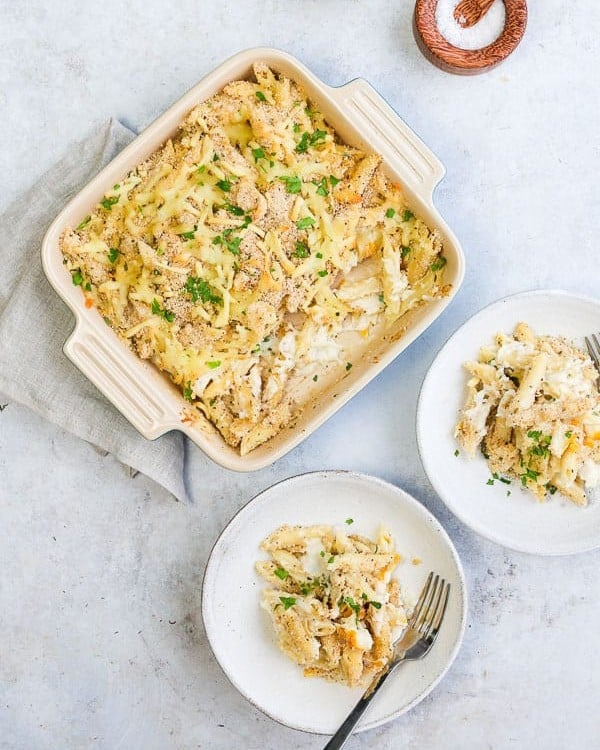
Louise Allison says
UK here, a swede is a swede and a turnip is a turnip- two different vegetables with seperate names.
Diana says
Hi Louise, sometimes it’s referred to as “turnip”. I explained the difference between a turnip and a swede in this post. I agree they’re definitely 2 different vegetables, although very similar.
Nikki says
This is just so delicious! Made it a couple of times now, and each time it’s gone down really well… Better than other ways of cooking swede, IMHO, as this does not normally feature on my list of favourite veg… But this method transforms it into something out of this world! Thank you!
Tracy Nixon says
I cook swede alot but have never thought of roasting it like this!
Julia says
It’s been ages since I cooked with swede. Gotta try it roasted coz it just looks delicious 🙂
Ellen says
I really need to try rutabaga. This recipe looks easy and delicious.